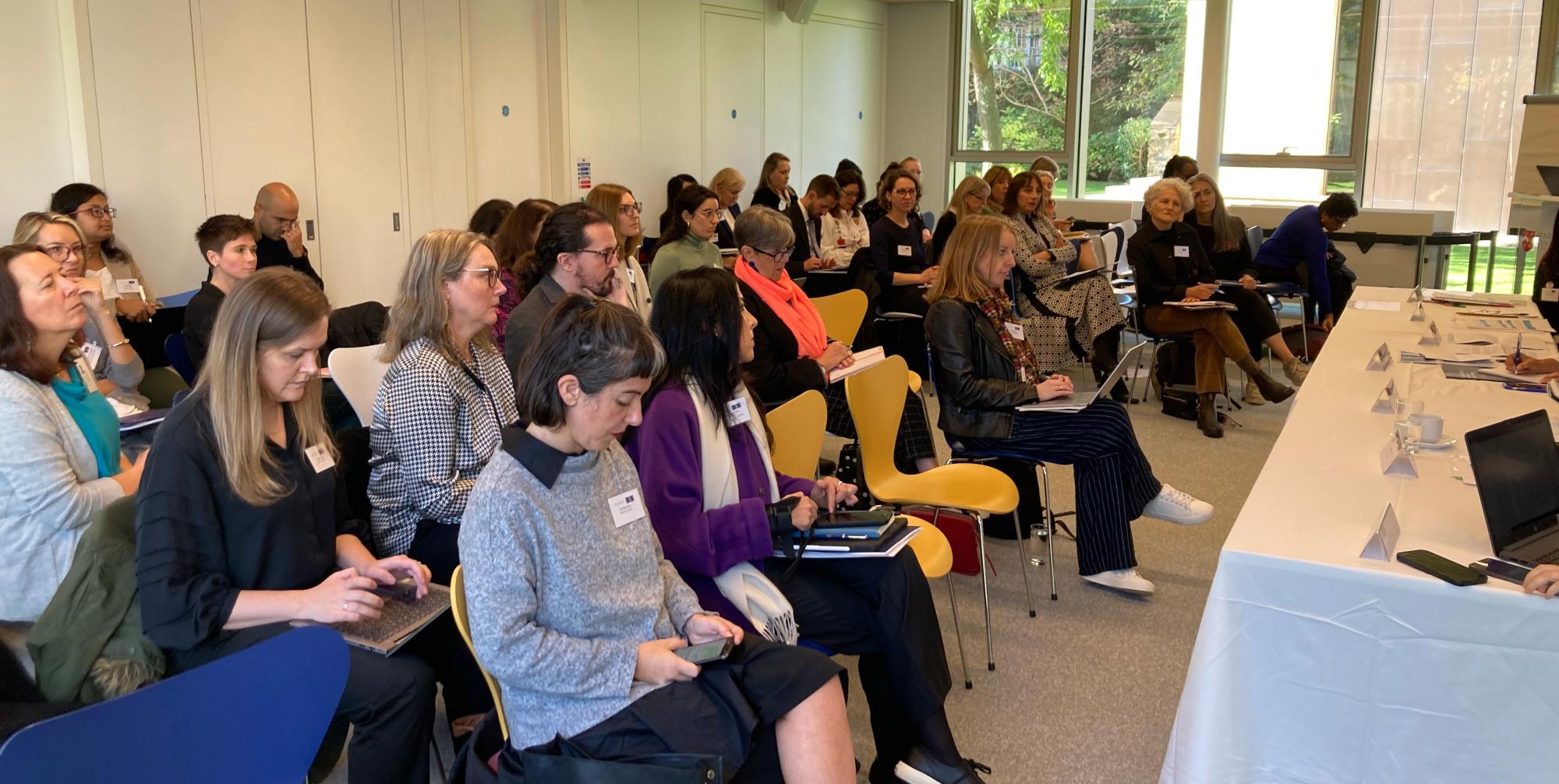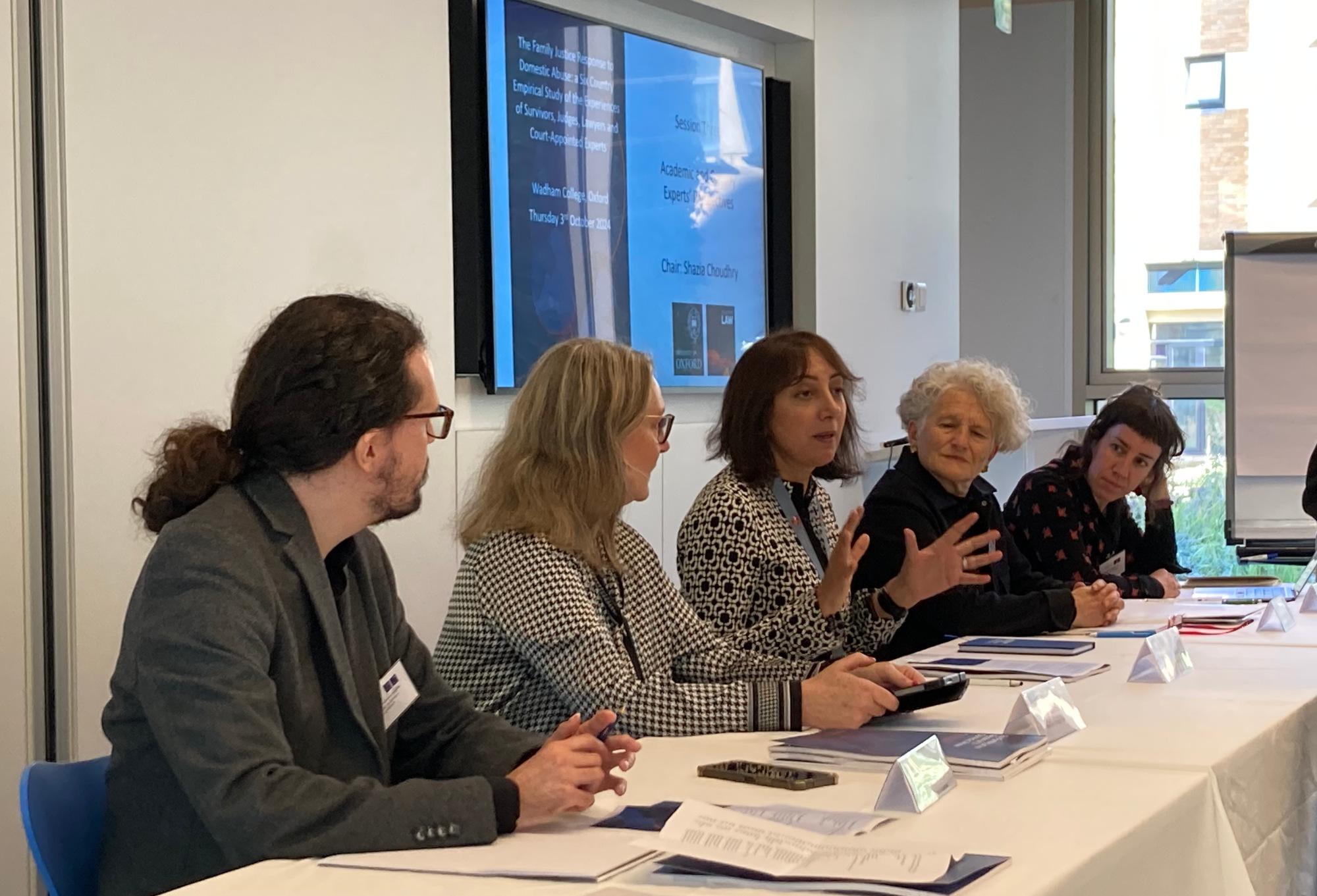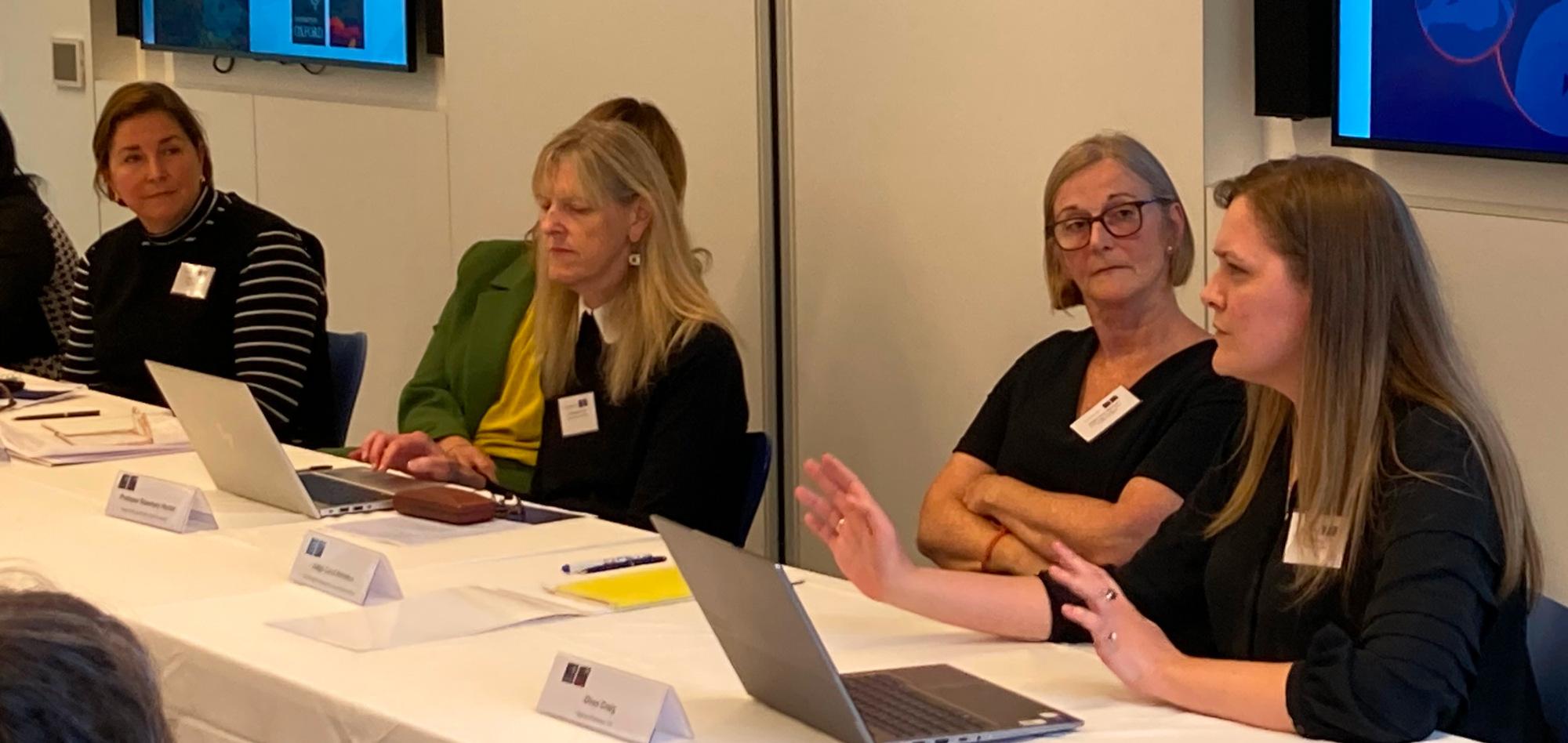Launch of report and animation on "The Family Justice Response to Domestic Abuse"
Associated people
Fifty delegates from nine countries and many fields of the family justice system attended a conference at Wadham College on 3rd October to discuss the launch of a report on “The Family Justice Response to Domestic Abuse: a Six Country Empirical Study of the Experiences of Survivors, Judges, Lawyers and Court-Appointed Experts” and an animation on one of the key messages from the research.
The three-year project led by Professor Shazia Choudhry was conducted in England, Wales, Italy, France, Spain and Bosnia. The project’s findings were discussed at the conference by international judges ( European Court of Human Rights judges and the InterAmerican Court of Human Rights) and domestic judges, representatives from CAFCASS England and CAFCASS Wales, NGOs, academics, lawyers, the Ministry of Justice and the Domestic Abuse Commissioner.

There was lots of productive discussion, with comparisons across the countries, on how court processes impact upon the experiences of survivors and how the different actors in the court processes view the problems with these processes from different perspectives.
The report and short animation will both be available in five languages and for use by all those involved in the family justice process.
Many of those at the conference had supported the project and worked with Professor Choudhry over the past few years. She thanked all those who helped her reach the stakeholders “and of course, one group without whom this research would not have happened without .. the survivors.”

Delegates spoke about the importance of research to help improve the justice system. Helene Roche from the Association Protegere L’Enfant in France said that:
“This report is vital for our association as we represent victims of domestic abuse. The report will help us develop the perspectives in a socio-legal environment and will help us protect victims better”
Carol Atkinson, the Lead Judge for Research across Family Justice for England and Wales explained:
“The reason we started research is because family courts are private and that has been seen critically. We were called secret courts giving secret judgments. So, now, research is part of transparency in justice, one has to be open to being seen.”

Nicole Jacobs, Domestic Abuse Commissioner, commented on the video and how it can used to support those working in the family justice system:
“I absolutely loved the video, partly because it I think it brings to light something I often hear many people within the court system say which is this lack of understanding of how to use effectively human rights law and it reinforces the need for a real focus on that, with many parties including lawyers themselves obviously and how I think in a very short and succinct way it helps understand how it’s being misused in some cases but also how it can be positively used. It’s provocative because it makes all of us in the room think about what it would take to make that shift.”
Olive Craig, Senior Family Lawyer at Rights of Women UK, a charity dedicated to providing frontline legal advice to women experiencing all forms of violence against women and girls in England and Wales commented that:
“The findings in this report about the lack of understanding amongst family law professionals about their duties under the human rights act are really shocking, so anything at all that increases awareness and understanding of what their role is, is really valuable.”
Professor Choudhry closed the conference explaining:

left to right: Ellen O’Malley Dunlop, Vice-President GREVIO, Council of Europe; Patricia Perez Goldberg, Judge, InterAmerican Court of Human Rights; Professor Shazia Choudhry, University of Oxford; Ivana Jelic, Judge, European Court of Human Rights; Oddny Arnardottir, Judge, European Court of Human Rights


